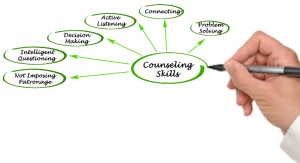Mastering the Art of Effective Listening Skills
Listening is not just about hearing words, but about truly understanding and comprehending the message being conveyed. Good listening skills are essential for effective communication and building strong relationships. By actively listening, you show respect and empathy towards the speaker, fostering a sense of trust and cooperation.
Types of Listening
Common Types of Listening
Active Listening:
• Focuses on and engages with the speaker.
• uses verbal and non-verbal cues to show understanding.
• paraphrases or summarizes the speaker’s message.
• asks questions for clarification.
Reflective Listening:
• Mirrors the speaker’s feelings and thoughts.
• paraphrases or summarizes the speaker’s words.
• Reflects their emotions back to them.
Empathetic Listening:
• Focuses on understanding and connecting with the speaker’s emotions.
• Demonstrates empathy and provides support.
Critical Listening:
• analyzes and evaluates the speaker’s message.
• requires careful thinking, questioning, and assessing the speaker’s validity.
Appreciative Listening:
• Listens for enjoyment and pleasure.
Why listening skills are important
Listening skills are essential for effective communication, building relationships, problem-solving, conflict resolution, learning, workplace success, customer satisfaction, and personal development. They allow individuals to understand and interpret messages accurately, fostering clear understanding and minimizing misunderstandings.
Good listeners are seen as trustworthy and empathetic, strengthening relationships both personally and professionally. Active listening helps gather relevant information, identify concerns, and collaborate on solutions. In a professional context, listening skills contribute to effective teamwork, collaboration, and leadership. In business, attentive listening is crucial for understanding customer needs and feedback. Cultivating strong listening skills is an ongoing process that contributes to personal growth.

Strategies for Improving Listening Skills
The Elements of Active Listening
Active listening involves more than just nodding and making eye contact. It requires full engagement and concentration on the speaker’s words, as well as their body language and tone. By actively acknowledging the speaker’s thoughts and feelings, you demonstrate genuine interest and create an environment of openness and understanding.
The Impact of Effective Listening
When you truly listen to someone, you are able to grasp their perspective and gain valuable insights. This not only enriches your own knowledge but also strengthens the connection between you and the speaker. Active listening helps to avoid misunderstandings and conflict, leading to better problem-solving and decision-making.
Overcoming Barriers to Effective Listening
In today’s fast-paced world, it can be challenging to maintain focus and avoid distractions while listening. However, by consciously setting aside time to listen without interruptions, you can overcome these barriers and improve your listening skills. Additionally, being mindful of internal biases and preconceptions can help you approach conversations with an open mind.
Developing your listening skills
Improving your listening skills requires practice and self-awareness. Techniques such as paraphrasing and asking clarifying questions can demonstrate to the speaker that you are actively engaged in the conversation. Being patient and allowing the speaker to express themselves fully before responding shows respect and consideration.
The Role of Listening in Personal and Professional Growth
Effective listening is a valuable skill that can enhance both personal and professional relationships. In personal interactions, it fosters trust and empathy, while in the workplace, it promotes teamwork and productivity. By honing your listening skills, you can become a more influential and respected communicator in all aspects of your life.
In conclusion, mastering the art of effective listening is a skill that can positively impact all areas of your life. By understanding the importance of active listening, overcoming barriers, and consistently practicing good listening habits, you can enhance your communication abilities and build stronger, more meaningful connections with others.

10 Tips for Active Listening
Listening skills are essential for effective communication and interpersonal relationships. Here are some key aspects of improving listening skills:
- Pay Attention: Give the speaker your undivided attention. Avoid distractions, and focus on what they are saying.
- Maintain Eye Contact: Maintain eye contact with the speaker to show that you are engaged and attentive.
- Avoid interruptions: Let the speaker finish their thoughts before responding or asking questions. Avoid interrupting or finishing their sentences.
- Show Empathy: Try to understand the speaker’s perspective and emotions. Show empathy by nodding, smiling, or providing verbal cues to indicate that you are actively listening.
- Ask Questions: Clarify information by asking relevant questions. This shows the speaker that you are interested and engaged in the conversation.
- Paraphrase and summarize: Repeat or rephrase the speaker’s main points in your own words to ensure comprehension and to show that you are actively listening.
- Avoid Judgments: Remain open-minded and avoid forming judgments or assumptions about the speaker’s message before fully understanding it.
- Control your response. Be mindful of your reactions and emotions while listening. Stay calm and composed, even if you disagree with the speaker’s viewpoint.
- Provide Feedback: Offer feedback to the speaker when appropriate. This can include positive reinforcement or constructive suggestions.
- Practice Active Listening: Actively engage in the conversation by using verbal and non-verbal cues to demonstrate your attention and understanding.
READ THIS



